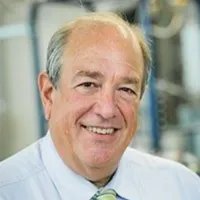
Biography
Despite efforts worldwide to increase renewable energy and lower petroleum consumption, as of 2019 petroleum is still 81% of the world’s energy mix. Canada is among the top 5 producers of petroleum; more than 75% of its production is oil sands bitumen, which many consider to be a “dirty” fuel. However, greenhouse gas emissions and water use in Canadian oil sands per unit of bitumen produced have lowered 50% in the last decade. The energy intensity of oil sands production is less than shale oil produced in the US. Forecasts indicate that within another decade emissions from oil sands will be equal to or less than conventional oil. The research questions that need to be addressed are regarding the sustainability of the petroleum industry: Can petroleum be transformed into a cleaner, efficient source of energy with minimum or zero-net CO2 emissions to help address global climate change? Can sustainability be measured with respect to environmental impact, economic growth, social development and improvement in human life?
Mike Schoen has a joint appointment as a Senior Instructor in Mining and Mineral Processing, and Chemical and Biological engineering. He has an M.A. in Energy and Mineral Resources from the department of Petroleum Engineering at the University of Texas at Austin and an honors undergraduate and graduate degree in English. He also has over 20 years of corporate experience in the oil and gas industry. His teaching focus is the 2nd year, core engineering communication course that is required of all engineering undergraduates.
As he tells students, he has a passion for oil and gas, which is why he is situated in mining and chemical engineering. He is the faculty advisor for the UBC student chapter of Society of Petroleum Engineers. For his “dream team” working on oil and gas drilling and completions, he would chose to have a mining and\or geological engineer because of their understanding of variability in mineralogy of source rock and rock mechanics for frac design; a chemical engineer because of their knowledge of diffusion through porous media; a mechanical engineer to optimize drilling processes; and an engineering physicist with a background in geophysics to help solve the problem of applied chemistry-finding petroleum sweet spots and breaking the bond of oil and gas molecules to rock.
His interests are in technical communication; teaching pedagogy; unconventional petroleum resources, specifically heavy oil, oil sands, and tight oil and gas; ghg emissions and carbon capture utilization and storage; mitigative measures for mature fine tailings and emergent SAGD technologies; energy and mineral resource policy; forecasts and supply demand scenarios for energy and mineral resource production and consumption worldwide.
Education
- The University of Texas , 1985, M.A.Sc.
- The University of Texas, 1982, M.A
- Simon Fraser University, 1979, B.A